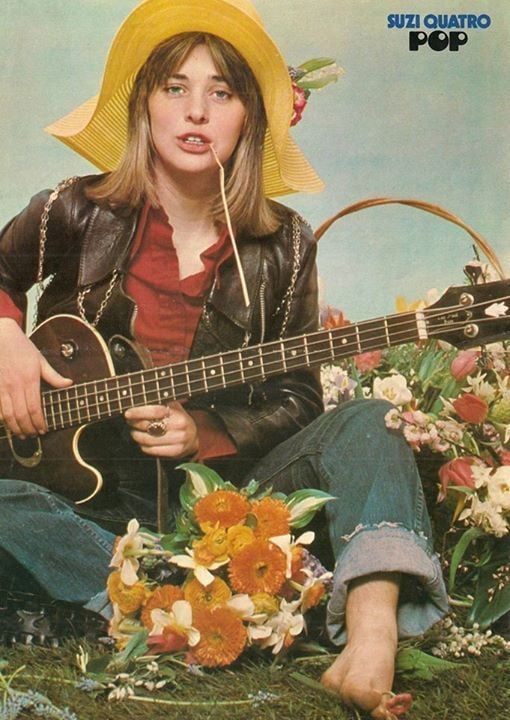
When Love Turns the World Upside Down
Ah, the mid-1970s. For those of us who came of age during that vibrant, sometimes bewildering decade, the airwaves were a kaleidoscope of sound. And then, there was Suzi Quatro. A force of nature, a leather-clad dynamo who exploded onto the scene, shattering preconceptions and paving the way for countless female rockers. In 1974, she unleashed her electrifying take on a classic, “All Shook Up”. While it didn’t quite replicate the massive chart success of her earlier hits like “Can the Can” or “48 Crash”, it still made a respectable showing, reaching number 25 on the UK Singles Chart. For many, this rendition became a testament to Quatro‘s unique ability to infuse raw power and undeniable swagger into anything she touched, even a song indelibly linked to the King himself.
Now, for anyone with a fondness for the golden age of rock and roll, the original “All Shook Up” by Elvis Presley is etched into our collective memory. Released in 1957, it was an anthem of youthful infatuation, capturing that dizzying, head-over-heels sensation of being completely smitten. Elvis sang of a love so potent it made him tremble, a love that turned his world topsy-turvy. But when Suzi Quatro tackled it, something new happened. It wasn’t just a cover; it was a reinterpretation, a statement. She took that inherent male vulnerability and transformed it into a declaration of fierce, unbridled passion. Where Elvis might have sounded charmingly flustered, Suzi sounded like she was seizing the feeling, owning it with every growl and every power chord. It was a subtle yet profound shift in perspective, one that resonated deeply with a generation eager for female artists to reclaim their narratives.
The story behind Suzi Quatro‘s decision to cover “All Shook Up” is as intriguing as her career itself. By 1974, she was riding a wave of international success, particularly in the UK and Australia, off the back of her critically acclaimed self-titled debut album, Suzi Quatro, and its follow-up, Quatro. Her image was iconic: tight leather jumpsuits, a bass guitar slung low, and a voice that could go from a purr to a roar in an instant. She was a pioneer, a woman in a male-dominated genre who refused to be relegated to a novelty act. Her covers often carried a deeper meaning, showcasing her influences while injecting her own inimitable style. Choosing “All Shook Up” wasn’t just a nod to a rock and roll legend; it was a bold assertion of her own musical lineage and her ability to stand shoulder-to-shoulder with the greats. It spoke to her respect for the roots of rock, yet her unwavering commitment to pushing its boundaries.
The meaning of “All Shook Up” under Suzi Quatro‘s command expands beyond simple romantic infatuation. While it still retains that initial thrill of new love, it also embodies a broader sense of empowerment and liberation. It’s the feeling of being so alive, so uninhibited, that the world around you is literally shaking with your energy. For older listeners, particularly women who might have felt constrained by societal expectations in their youth, Suzi‘s rendition was a cathartic release. It was an invitation to embrace their own power, to feel the exhilarating rush of life, and to not be afraid to be a little “shook up” by the intensity of their own emotions. It wasn’t just about a boy or a girl; it was about the dizzying thrill of being authentically, unapologetically you. Her performance wasn’t just a vocal exercise; it was a physical manifestation of this feeling, her movements on stage as electrifying as the song itself. It’s a track that, even today, has the power to transport us back to a time when rock and roll felt raw, vital, and utterly revolutionary. It reminds us that some feelings are timeless, and some artists are simply unforgettable.